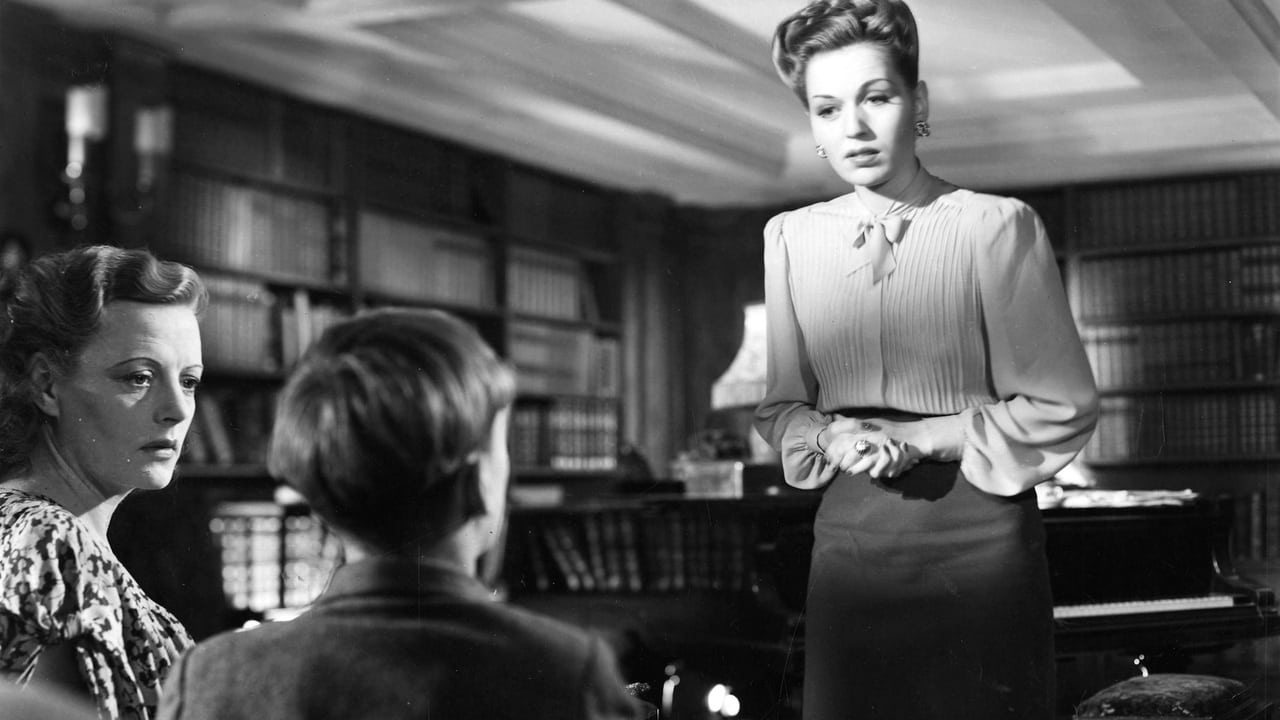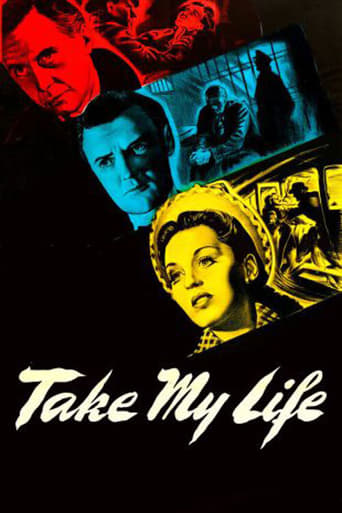


I agree with most of the other reviewers on how stylishly this film is acted and directed. But the (predictable spoiler warning) misleading coincidences leading to the false accusation are too unlikely to be believable; I'm afraid the protagonist must have been guilty. And the further coincidences leading to the supposed bad guy are so implausible, and the obstacles facing the intrepid but dim heroine so preposterously handled, that suspension of belief is impossible.
... View MoreNear the opening, Hugh Williams' wife, Greta Gynt, in a fit of jealousy, throws an item from her dressing table at him and it glances off his forehead. I was shocked. I'd always thought that the Brits, so skilled in the conversational arts, left those sorts of physical rows to us Americans.I recall such an exchange with my own wife. It was Hallowe'en night and she was dressed in a tiger costume and a plastic Mickey Mouse mask. I'd been baking and began throwing paper-thin cupcake tins at her. She danced from side to side, evading every one. I stopped when I realized what the scene would look like to an outsider: A man in an apron hurling tin cups at someone in a tiger outfit wearing an immutable Mickey Mouse grin. If I hadn't been disabled by laughter I would have tried strangling her, as Hugh Williams strangles the next woman, an ex lover, he has an encounter with.At least that's what he's accused of by Francis X. Sullivan, representing the Crown. Sullivan's booming narration talks us through the prosecution's view of events. The booming baritone is illustrated by multiple flashbacks, all of which make Williams look guilty as hell. All except one, which reveals the murderer to be a man we've never met. Sullivan's hypothetical scenario is interrupted from time to time to show us the rounds of the real killer. He has evidently been told never to blink.The victim, by the way, William's ex lover, is Rosalie Crutchley whose features and dark eyes are both striking and attractive. She was the arid housekeeper in "The Haunting." Williams' wife, Greta Gynt, is horribly upset that her husband is in the Crowbar Hotel and they're dusting off the gallows for him. She helps by following every possible link, and one of them improbably leads her to the murderer. The pace of the story picked up markedly. One of the relay points is the shop of a devoutly Presbyterian photographer in Edinburgh and it's rather funny. Nice to have a light spot in a drama like this. The climax is again violent, recalling Hitchcock's "Shadow of a Doubt." In any case, not to worry. Near the beginning, when Crutchley writes a note to Williams, it's used as evidence against him in court. "Alas, the love of women! it is known To be a lovely and a fearful thing." The trouble begins with Lord Byron, then, but it also ends with Williams and Gynt together again, as if they'd never been apart. "I have great hopes that we shall love each other all our lives as much as if we had never married at all." A snappy and suspenseful thriller. I enjoyed it.
... View MoreThis is a superb example of a high-calibre British postwar murder mystery. It was the first film ever directed by Ronnie Neame, who is mostly famous for his classics 'Tunes of Glory' (1960) and 'The Prime of Miss Jean Brodie' (1969). The cinematography by Guy Green (later a director) is inspired and intensely expressionist in the German manner. Neame really shows what a brilliant director he was, not only coaxing excellent performances out of his actors, but keeping the pace and the tension despite the fact that the identity of the murderer is revealed very early. Francis L. Sullivan is, as usual, hair-raising as the prosecuting counsel, although his role should have been more prominent if the film had not been so short at only 76 minutes. (One suspects things were cut out before release, as the buildup of Sullivan really does fizzle out without explanation.) The scenes towards the end of the film really do become incredibly menacing and powerful, as Marius Goring, who plays the murderer in an eerie and intense style, can be seen calculating what he must do next, and sets about it with the methodical determination of a man who now has nothing to lose. Hugh Williams is excellent as the rather formal husband of Greta Gynt, an equally formal wife who is an opera star. It is difficult for such people to cope with real situations of danger, as their behaviour is so mannered, even in their most private moments, that quick thinking and quick action are impossibilities for them, what with all the thawing out they have to do first, not to mention the necessity of changing for dinner, straightening the black tie, and making sure every hair is in place. Sometimes when your life is in danger, such formalities can be rather impeding! But that is part of the irony of this tale, of which a subliminal motif is: things like that don't happen to people like us. In this film, the doomed victim is Rosalie Crutchley, who really was a fascinating wench at that early age, in fact, someone to whom you can imagine almost anything could happen, and it does.
... View MoreWinston Graham was a great story teller, who was a top writer in all genres. His best known works are the "Poldark" series that were made into an acclaimed television series. Among his books that have been adapted for films - "Marnie" was filmed by Alfred Hitchcock and starred Sean Connery and Tippi Hedren. "The Walking Stick" starred David Hemmings and Samantha Eggar and was a romantic thriller."Take My Life" was the first Winston Graham book to be filmed. Additional dialogue was by Winston Graham and Margaret Kennedy (who wrote "The Constant Nymph") so it is a very stylish film.Greta Gynt, Britain's resident sex symbol of the 40s (even though she was Norwegian) plays a rare sympathetic role. She plays Phillipa, an opera singer giving her first performance in England. She has a volatile marriage to Nicholas (Hugh Williams). During the performance Nicholas sees a girl (Rosalie Crutchley) that he has known in former times and she begs to see him after the show.By morning the girl has been murdered and by an unfortunate co- incidence, Nicholas has been charged with murder. (He has a quarrel with his wife - they throw things at each other and Nicholas leaves the flat with a gash over his eye. The murderer also has a cut over his eye, where the girl hit him with a lamp when she was being strangled.)The murderer is revealed early on and there is a game of cat and mouse as Phillipa goes to Scotland, hot on his trail. A piece of music is part of the mystery as well. I really enjoyed it. British films had their own brand of "film noir" and this is a great example.
... View More